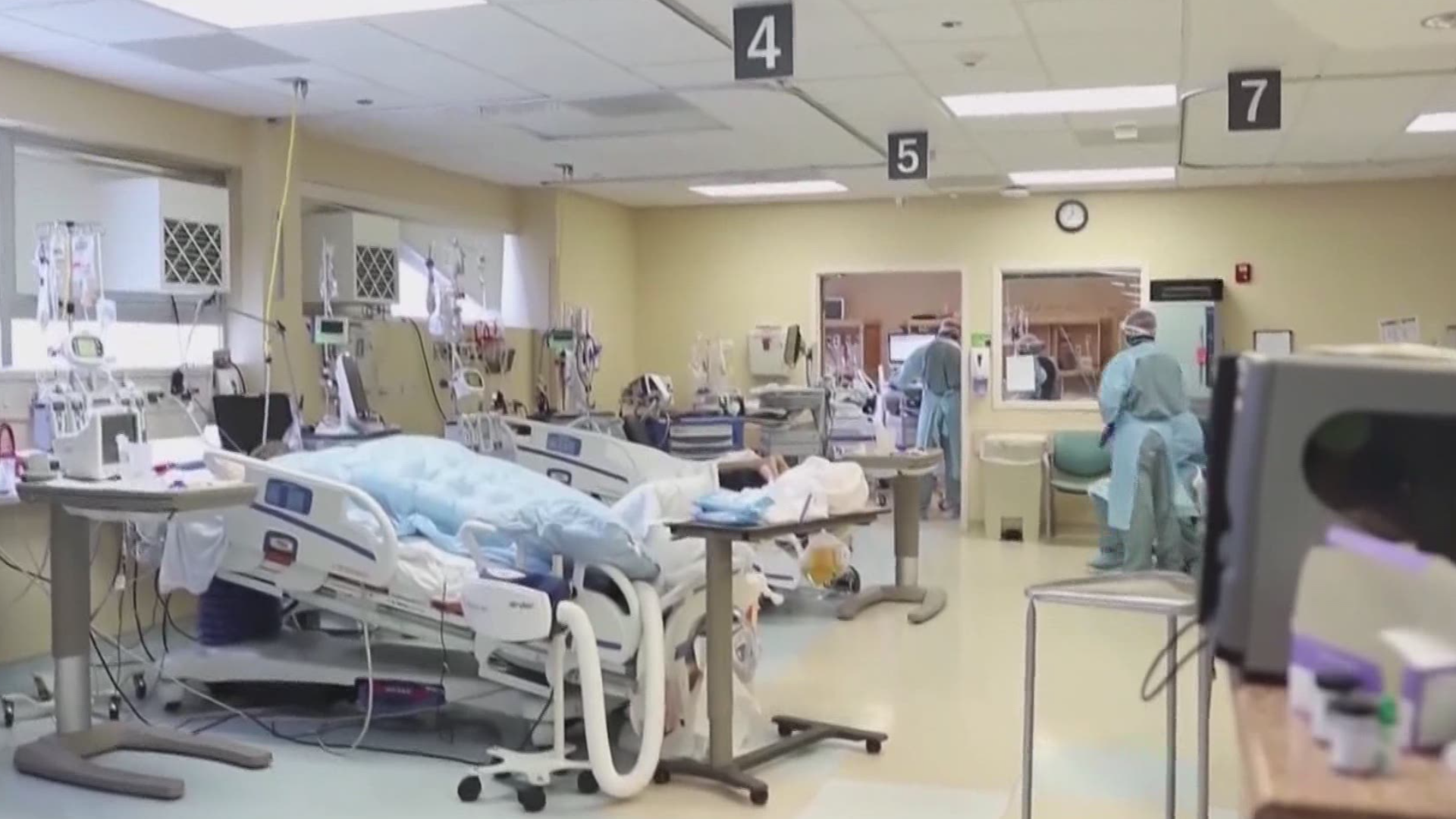TAMPA, Fla. — COVID-19 has changed many aspects of our lives and our jobs. Zoom has replaced the board room, and coworkers come in the form of kids and pets.
But even for those who are still going to work, a lot has changed. For nurses, the pandemic has changed how they see patients, care for them and more.
That's why USF Health's College of Nursing has developed a new training program for working nurses to help them with COVID-19.
Emergency room nurse Kerie Seelenbrandt has been a nurse for 13 years. Her job changed overnight when COVID-19 began to rapidly spread across the U.S. “It was just a different feeling. It was very scary.”
Seelenbrandt was used to high pressure situations working in the emergency room, but she was not used to being one of the only people in the room as her patients prepared for the end.
"The worst part is not being able to have their family or when they're at their end, not being able to have a priest come in, and give them last rites," Seelenbrandt said. "And, you know, they had to do that through a doorway. It's just a different way of passing on than we are used to. And that that emotionally took a toll on a lot of us. It really did.”
Seelenbrandt was not the only nurse that felt this new pressure and stress.
"We have heard that reported from nurses across the country that really, these experiences are taking a toll on them both physically and mentally," said nurse Rayna M. Letourneau, a PhD nurse and assistant professor at the College of Nursing at the University of South Florida.
Letourneau helped to develop USF Health's College of Nursing new, four-part, on-demand webinar series, “Frontline Nursing During COVID-19: A New Paradigm."
“The theme is really beyond just basic infection control and hand washing and mask wearing. But our key themes are giving the nurses the power, to be able to keep themselves safe while they're caring for their patients," said Letourneau.
Because the course is online, any nurse that is interested is able to take the course. It is also free, thanks a donation from Sarasota philanthropists David Kotok and Christine Schlesinger.
Seelenbrandt was able to complete the course from Rhode Island. “So I thought that was really important for me to be able to pick up on anything that I might not be aware of. And that way I can bring that back to my colleagues and make sure that you know they're safe."
The course includes tips on how to stay healthy while working in PPE all day.
"Going through an eight hour or 12 hour period with an N95 masks on, you don't hydrate. So you know it it made me think okay, before I start my shift, I'm going to chug a bottle of water. Making sure halfway through my shift, I at least do the same," said Seelenbrandt.
And also includes ways to prevent burnout and mental health issues. A skill and support that is needed by many healthcare workers as we near the one-year mark of the COVID-19 pandemic.
“I think the general public look at nurses as a resilient bunch, right, but there's only so much that we can take and really we need to be able to renew that resilience," said Letourneau.
- 'Don't let me find you': Dad warns man who stole SUV with 1-year-old inside
- Ash Wednesday will look different this year due to the ongoing coronavirus pandemic
- Local medical expert weighs in on safe spring break plans
- Sand tiger shark washes ashore on St. Augustine Beach
- Commissioner admits she handpicked zip codes to receive vaccine appointments
- FWC launches criminal investigation following reports of 13 scalped pelicans near Skyway Fishing Pier
►Breaking news and weather alerts: Get the free 10 Tampa Bay app
►Stay In the Know! Sign up now for the Brightside Blend Newsletter

